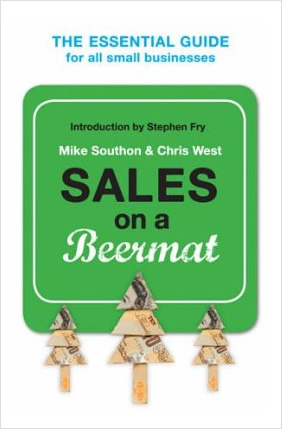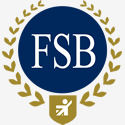Growing a Business
 If you are a revenue-generating business working from home, in our model, you are a ‘Sapling’.
If you are a revenue-generating business working from home, in our model, you are a ‘Sapling’.
At this stage of your development, your focus should be on Sales, which is always a combination of ‘on-line’ (selling via the Internet) and ‘off-line’ (selling face-to-face.
There are many people near you who can help you with your web site design and search engine optimisation. Just beware people who ask for large sums of money up-front!
The best way to find such a supplier is by personal recommendation. Ask friends, colleagues and other local companies who they use, and who they trust to do a good job.
Then, do as much work as you can in understanding and defining what you want. Disputes often occur if the specification you have given is vague, or you keep moving the goal posts.
Always carefully check out supplier’s references and make sure you get your money back if they do not deliver precisely what was promised in advance.
My own speciality has always been face-to-face selling, so I recommend our book Sales on a Beermat.
I also provide regular, inexpensive Sales on a Beermat workshops in London. These are specially designed for non-salespeople and involve no embarrassing role plays!
You can run your ‘Seedling’ business from home as long as you like – there’s no longer any rule that says you have to have a proper office. My only top tip at this point is, again, to get someone with bookkeeping skills to help you with the administration.
If your business is generating a significant amount of cash, you would be advised to engage with a local accountant who can also help formally set up your business, deal with tax etc. Again, most people engage their accountant based on the recommendation of someone they trust.
 And you would be well advised to look into membership of the Federation of Small Businesses.
And you would be well advised to look into membership of the Federation of Small Businesses.
At the time of writing, the membership cost is around £150/year for a sole trader. The benefits you receive from membership will pay this back many times over.
You can find more information on the Federation of Small Businesses here: www.fsb.org.uk
Becoming a Sapling
In our Beermat model, you become a Sapling when you decide to get an office.
This may because you want to move the enterprise out of your house to improve your work-life balance or you now have a few members of staff working with you on a regular basis and you want to improve internal communication.
There are many cheap options for offices nowadays, with some very good deals for rental. There is also a wide range of incubators and services offices available, which often provide useful services, including advice and mentoring.
Plus, you’ll be amongst other Seedling companies, so you can network and compare notes with other like-minded souls.
But you will also be paying rental and other fixed costs every month, so you would be well advised to employ a bookkeeper to do any tiresome administration, if only for an hour a week.
And as your enterprise is now visible, by now you should definitely have set up your company formally and started your formal relationship with the tax authorities, so a good, local accountant is essential.
This is very much about generating sales, so do check out Sales on a Beermat again, and the public workshop that I run. Sales on a Beermat is specifically designed for people new to sales and non-salespeople.
Building a Team
Assuming you have services and products that people want, it’s now all about building the team, which I consider the hardest part of entrepreneurship.
As I say in my Something About The Beatles keynote presentation, The Fab Four were one of the best teams ever: John Paul, George and Ringo.
But this did not happen immediately; initially they has Stuart Sutcliffe on bass and Pete Best on drums. Both were very good musicians, despite what you might read elsewhere.
As you grow your company, you might well have your own Stuarts and Petes, which can be very emotionally draining if you find yourself in conflict with team members who are long-term friends or close family.
The first step is to find your ‘Foil’, someone with the opposite skills to yourself. This is often one introvert (responsible for delivering your products and services) plus one extrovert (responsible for sales).
There are many good examples of this: Steve Wozniak and Steve Jobs at Apple; Robert Devereaux and Sir Richard Branson and at Virgin; David Ross and Charles Dunstone at Carphone Warehouse; Gordon and Anita Roddick at The Body Shop; John Lennon and Paul McCartney in The Beatles, and of course Chris West and Mike Southon in The Beermat Entrepreneur.
Then, you’re looking for people to work in your company, not ‘employees’ who leave work at 17:30; these people would probably happier working for a large organisation.
We call these people your ‘Dream Team’ – people who, although they might initially be inexperienced, always go that extra mile for the company and your customers, and always learn from their mistakes.
If they are so good that they become essential to the good running of your business, then they will ultimately become what we refer to in out Beermat model as ‘Cornerstones’ of the business.
True cornerstones, once they have proved themselves, should always be given equity, while Dream Team members should have stock options, which are returned to the shareholders if they choose to leave the company,
Always remember, your enterprise is only as good as the people in it (other than yourself!), and owning 20% of something substantial is much better than owning 100% of something tiny!
If you’re good at what you do and build a good team, you can eventually grow your Sapling into a Mighty Oak. But be very careful – this happens sooner than you think!
The Mighty Oak
In The Beermat Entrepreneur, we say that the transition between ‘Sapling’ and ‘Mighty Oak’ happens between 25 and 35 people. Below 25 people you have a ‘tribe of friends’ and there is no problem with communication, as you meet frequently in the pub or restaurant in the evenings chatting to each other.
If your company stumbles over 40 people, typically due to word of mouth spreading about your excellent products and services, then weird things start to happen to your company
Early joiners complain that they don’t know everyone in the company anymore and there is often a vague implication that the new people are lower quality then themselves. There are complaints about not being informed about key decision and that there are too many e-mails and meetings.
Other key symptoms of growth problems are staff complaints about no longer having 24/7 access to the founders and irritation when formal processes are implemented, such as time sheets and formal performance reviews.
I often say in my presentations is that you know when you’ve accidentally stumbled into ‘Mighty Oak’ territory, when you arrive at work to find there is suddenly a lock on the stationery cupboard….
Mike’s Top Piece of Advice for Growing Businesses
If you’re company has reached around 20 people, it’s time to take a breath and review your ambitions.
It is completely reasonable to conclude that you would only like to build a boutique business, and not go through the painful steps I outline later in order to become a Mighty Oak.
If you do decide to stay as a boutique business, you can make you only employ people you like and only work with clients who don’t bully you or mess you about. You can raise your prices when necessary and your clients will have no problem paying a premium for great customer service.
One day you will decide you’ve had enough fun and made enough money, turn the lights off and go home. You may not be as rich as Bill Gates, but you will be wealthy enough to support a nice lifestyle, and not have to go through the painful and often thankless process of growing a large enterprise.
Going for Growth
Alternatively, you may decide that you do want to go for it and build a substantial business.
Good for you! I have a top piece of advice: “hire grown-ups”.
Entrepreneurs of any age typically have the classic characteristics of a hyper-active child. Some attributes are essential – the need for change, boundless enthusiasm and a firm belief in their own invincibility and immortality.
Sadly, they can also show signs of arrogance and find themselves enjoying manipulating people, lacking focus, and showing an alarmingly low span of attention.
It is always an important emotional turning point when the entrepreneur admits that the biggest obstacle to growing the business is them self.
Successfully growing your business has two stages: first you need a period of honest self-appraisal and then you need to delegate the tasks you don’t enjoy to other people.
These are people in your business with a proven track record in implementing formal processes required to grow a business past 50 people. I call these people ‘grown-ups’.Grown-ups are very good at the tiresome but essential processes that are required to grow a business.
I frequently meet people in large organisations who would be ideal for Sapling companies who aspire to be Mighty Oaks. They have all the process skills necessary and would relish the challenge of helping grow a business with a proven business model. In large organisaitons they can become frustrated and see a Sapling business as one where they can really find a difference.
So you need to find these people and then let them get on with it. My advice here is “why buy a dog and bark yourself?”.
I know this can be difficult, which is why I offer a free and confidential mentoring service for entrepreneurs who aspire to grow from Sapling to Mighty Oak.
If this is you, please get in touch.
A Top Team Building Tool
 I always recommend psychometric testing to increase your own self-awareness and help put together balanced teams.
I always recommend psychometric testing to increase your own self-awareness and help put together balanced teams.
An excellent place to start is a Personality Test I use every day when mentoring entrepreneurs: Talent Dynamics
This is a third-party product which I thoroughly recommend. You can find more details about it here: www.talent-dynamics.com
We all fit on this diagram somewhere, depending on our psychological profile.
There are eight profiles, and therefore eight different ways to be a successful entrepreneur:
- Mechanic (like James Dyson) – good at delivery, like an inventor or engineer
- Creator (like Richard Branson) – good at generating ideas
- Star (like Oprah Winfrey) – good at self-promotion and sales
- Supporter (like Allan Leighton) – good at building and managing teams
- Deal Maker (like Rupert Murdoch) – good at negotiating win: win outcomes
- Trader (like George Soros) – good at identical transactions
- Accumulator (like Warren Buffett) – good at accumulating cash
- Lord (like Lakshmi Mittal) – good at understanding cash-flow
In general terms, we can be defined as more or less introvert/extrovert and intuitive/grounded.
If you decide to complete your Talent Dynamics profile, by all means send me the PDF output and a short description of your business, and I’d be happy to give you a few pointers.




